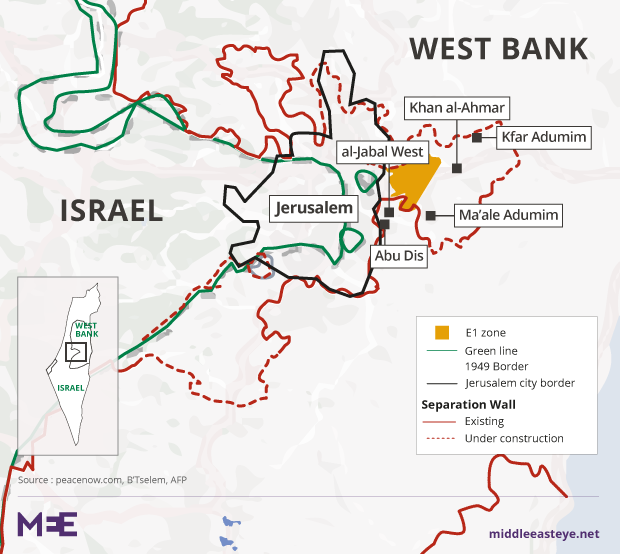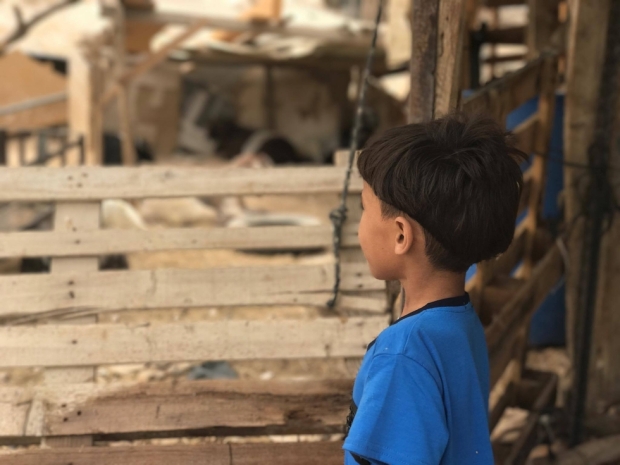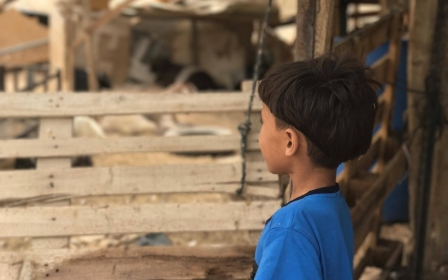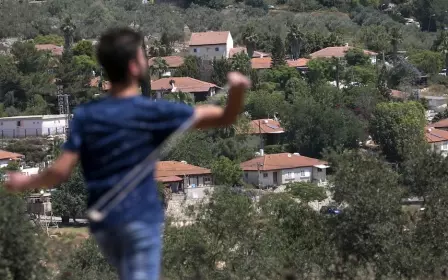Israeli court authorises demolition of Palestinian village of Khan al-Ahmar
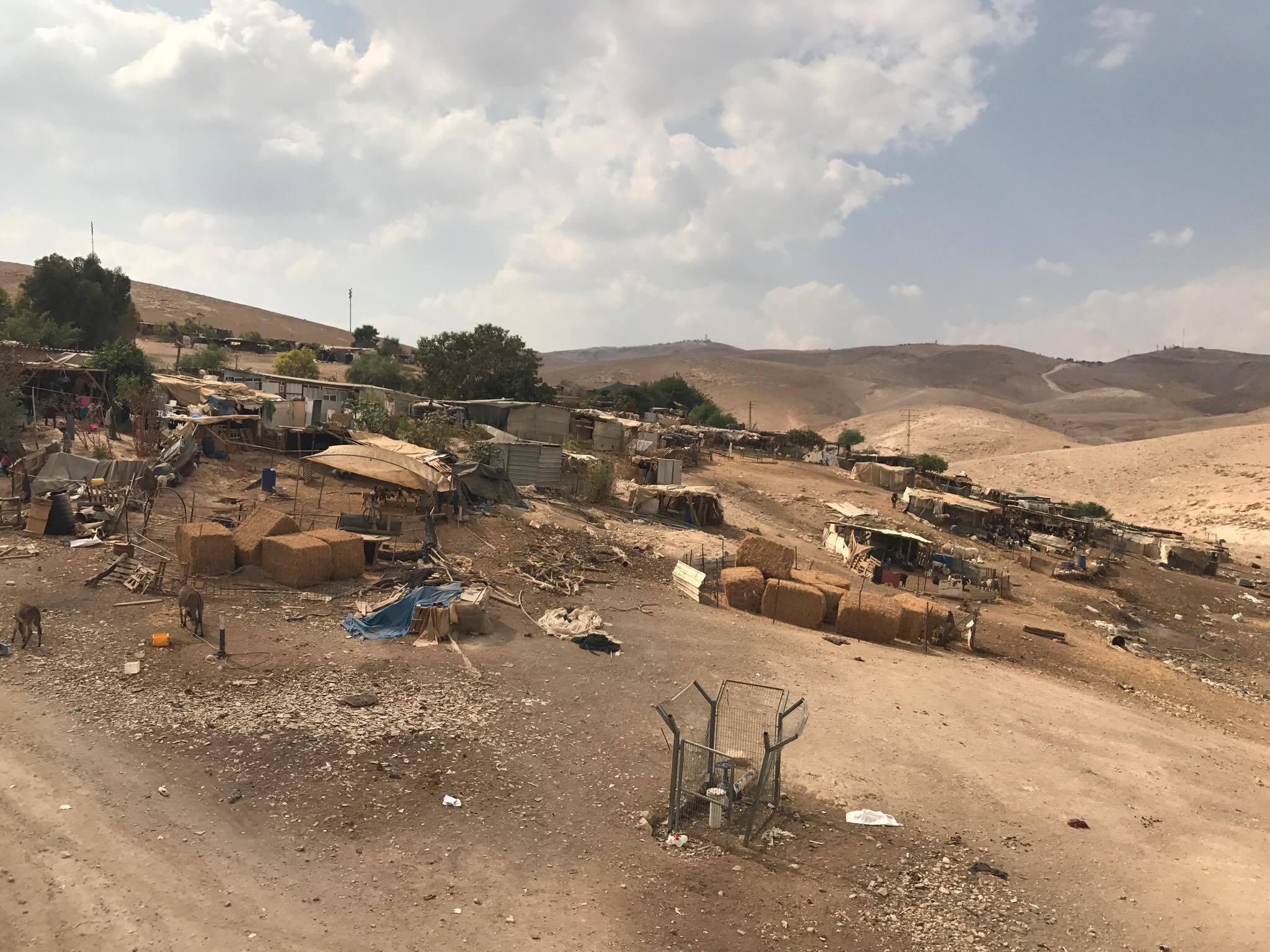
Ignoring the pleas of European governments and senior US politicians, Israel's Supreme Court ruled on Thursday in favour of demolishing a Palestinian village in the occupied West Bank.
Campaigners said the hearing was the final appeal open to the village of Khan al-Ahmar, located along a main highway that leads to the Dead Sea and surrounded by several illegal Israeli settlements east of Jerusalem.
It was unclear when the demolition of the village, home to about 180 residents, would take place.
The community comprised of some 35 families belonging to the Jahalin Bedouin tribe have had their makeshift homes and schools, mostly made of corrugated metal and wood, demolished by the Israeli army several times in past years.
Israel intends to demolish the village as part of the so-called E1 plan, which involves building hundreds of settlement units to link the settlements of Kfar Adumim and Ma’ale Adumim with East Jerusalem in the Israeli-controlled Area C of the West Bank.
Residents of the village last year told Middle East Eye that they would resist any move to evict them from their homes.
“Area C was constructed around us and our homes, not the other way around,” Eid Abu Khamis, the spokesperson for Bedouin communities in the Jerusalem district and a resident of Khan al-Ahmar, told MEE.
“We came here after they [Israel] kicked us out of our homelands during the Nakba and now they want to kick us out of this land, where we have lived for more than 60 years."
In its ruling the court said it found "no reason to intervene in the decision of the minister of defence to implement the demolition orders issued against the illegal structures in Khan al-Ahmar".The residents will be relocated elsewhere, it added, in a move that critics say amounts to forcible transfer. It's most likely that the community will be moved to an area near a landfill in Abu Dis, a rundown West Bank suburb of East Jerusalem, according to previous Israeli government plans.
The court ruled that the village was built without the relevant building permits.
Such permits are nearly impossible to obtain for Palestinians in Israeli-controlled areas of the West Bank.
The Palestinian presidency denounced Thursday's court ruling, calling it a racist effort to "uproot the legal Palestinian citizens from their land to control it and to replace them with settlers".
Last year, 10 US Democratic senators, led by Bernie Sanders and Dianne Feinstein, implored Israeli Prime Minister Benjamin Netanyahu to halt the demolition plans for West Bank Palestinian villages, including Khan al-Ahmar.
"We have long championed a two-state solution as a just resolution to the Israeli-Palestinian conflict," the senators wrote.
"Yet, your government’s efforts to forcibly evict entire Palestinian communities and expand settlements throughout the West Bank not only directly imperil a two-state solution, but we believe also endanger Israel’s future as a Jewish democracy."
The EU has also sharply criticised plans to evict Khan al-Ahmar's residents.
"The practice of enforcement measures such as forced transfers, evictions, demolitions and confiscations of homes and humanitarian assets (including EU-funded) and the obstruction of delivery of humanitarian assistance are contrary to Israel’s obligations under international law," Lars Faaborg-Andersen said last year, when he was serving as the EU's ambassador to Israel.
Israel regularly demolishes Palestinian homes and schools in the West Bank, arguing that they were built without a permit. But Human Rights Watch notes that "the Israeli military refuses to permit most new Palestinian construction in the 60 percent of the West Bank where it has exclusive control over planning and building, even as the military facilitates settler construction".
In 2016, the UN Security Council passed a resolution that condemned "all measures aimed at altering the demographic composition, character and status of the Palestinian Territory occupied since 1967, including East Jerusalem".
Middle East Eye propose une couverture et une analyse indépendantes et incomparables du Moyen-Orient, de l’Afrique du Nord et d’autres régions du monde. Pour en savoir plus sur la reprise de ce contenu et les frais qui s’appliquent, veuillez remplir ce formulaire [en anglais]. Pour en savoir plus sur MEE, cliquez ici [en anglais].


